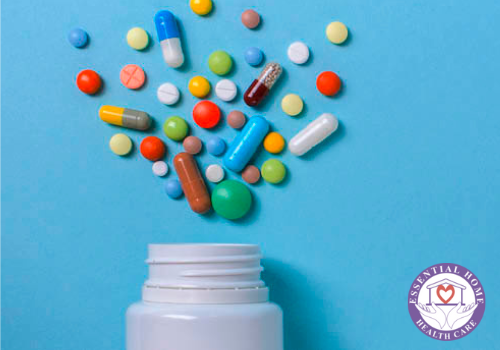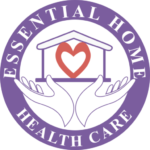Medications are frequently used in conjunction with other forms of treatment such as counseling, family therapy, and/or behavioral therapies. You can find the right medication and treatment plan with careful monitoring and ongoing discussion. What is medication management?

Medication Management Therapy: What Is It?
Medication management therapy, or MTM, is a treatment system used by doctors and pharmacists to ensure that patients receive the best therapeutic outcomes possible from their prescription medications. Medication Management Therapy is applied to a wide range of professional activities, including:
- Performing patient assessments or a thorough review of prescriptions and potential interactions or side effects.
- Creating medication treatment plans for both the short and long term.
- Keeping track of the safety and efficacy of all prescription medication plans.
- Patient education is used to ensure directional or instruction-based compliance.
- Improved documentation and communication among MTM service providers to ensure a high standard of care among medical professionals.
- In short, medication management therapy is a collaborative effort between pharmacies (and often healthcare providers and other medical professionals) to ensure that drugs are used as prescribed while limiting the possibility of abuse and that patients are educated and able to use the prescription properly for their specific ailment.
- Eleven national pharmacy organizations have adopted this as the standard for MTM care since 2004.
Medication Management Therapy Methods
Medication therapy management consists of five core components that the American Pharmacists Association and the National Association of Chain Drug Stores Foundation outlined in a comprehensive service model that has since been adopted by more than a half-dozen additional pharmacy-related associations. Always make ready medicine boxes for elderly so they can get assistance as early as possible.
These elements are as follows:
- Medication therapy review (MTR): This systematic process of collecting patient-specific data allows pharmacists to assess medication therapies, identify medication-specific problems, and develop a plan to address them. This step is frequently in the form of a verbal or written (often a checklist) consultation that assists the pharmacist in determining whether the medication provided gives the patient the best chance of recovery or management of specific conditions with the least risk of adverse side effects. If a better alternative exists, the MTR will assist the pharmacist in locating it.
- Personal medication record (PMR): This is a list of all other prescription medications you are taking or have recently taken. Herbal products, non-prescription medication, and dietary supplements are also included on this list. The PMR enables pharmacists to assist patients with their overall medication therapy self-management and to ensure that there are no inter-drug reactions or serious adverse side effects from certain prescription medication cocktails.
- Medication-related action plan (MAP): A medication-related action plan (MAP) is essentially a document that details a list of actions to take (or not take) to track better progress toward achieving specific health goals while on medications. For example, suppose you suffer from crippling anxiety. In that case, the MAP will advise you on what steps to take (and which to avoid) and the information you need to properly assess whether or not the medication is helping to combat or manage the condition.
- Intervention and/or referral: Because some patients’ conditions or therapies are extremely complex, the pharmacist can frequently intervene if the patient demonstrates a general lack of understanding of the condition or its treatment protocol. This frequently results in direct interaction with the pharmacist and prescribing physician to determine whether additional monitoring, patient education, or a return visit to the doctor is required.
- Documentation and follow-up: Because this documentation is intended to be a complete record of patient care steps and a documented history of medications, past interactions, or unintended side effects, it must be updated regularly. This update is typically performed when the patient’s care is transferred from one care setting to another, a prescription change is made, or the patient requests it.
What to Look for in an MTM Specialist
Most pharmacy associations now follow MTM or a modified medication or prescription management strategy. As a result, your neighborhood pharmacy will likely have exactly what you require. However, as with any other patient care service, if you are dissatisfied with how your pharmacist or MTM specialist handles your needs, you can seek out others who may be more accommodating.
What is the definition of Psychiatric Medication Management
This is when psychiatrists or psychiatric practitioners provide patients with psychiatric medication management and assessment. If you are unsure whether medications are the best option, a psychiatrist or practitioner can help you explore your options. There are many unknowns when it comes to the available medications; however, understanding how a professional can assist you and learning what medication management entails will help alleviate many of the unknowns. Knowing what to expect from a psychiatric evaluation will also help to reduce your anxiety about it.
Our mental health is intertwined with our physical and overall well-being. Traumatic experiences can leave us feeling anxious, overwhelmed, and depressed. These feelings can lead to destructive behaviors in our lives and relationships if we do not seek treatment. It’s just as important to have a physical with your doctor every year as it is to have a mental health check-up.
A psychiatrist or psychiatric practitioner will perform an initial checkup, much like a care provider. This examination is an assessment, and it is essentially an overview of your symptoms that will aid in determining whether or not the medication is a good option for treating your mental health concerns. Physicians provide physical care, whereas psychiatrists use discussion to get to the heart of your mental health concerns.
After the assessment, a diagnosis and a treatment plan tailored to your specific needs are developed. If it is determined that medication is the best option, you will be informed and educated about its uses and side effects.
You must first agree on medication and treatment options, and then the medication will be prescribed for a trial period to assess its effectiveness. Medication management is a component of psychiatric care. They track the medication’s effectiveness over time to see if it meets your objectives. It is important to note that the effectiveness of psychiatric medications varies from person to person because everyone reacts differently to them. Everyone has unique brain chemistry that reacts differently to each drug; no two people will have the same reaction.
Medications are frequently used in conjunction with other forms of treatment such as counseling, family therapy, and/or behavioral therapies. You can find the right medication and treatment plan with careful monitoring and ongoing discussion.
It’s important to remember that taking prescription medications always comes with risks and side effects. Your psychiatrist should go over all of this with you in depth. Many psychological problems do not require medication; however, there are times when prescription medications are a good option for struggling patients.
Medication is important in treating many mental illnesses, including depression, schizophrenia, bipolar disorder, anxiety, panic attacks, sleep problems, attention deficit disorder, and others.
Just keep in mind that there are no silver bullets in any treatment. It takes effort and time to improve your mental health. No medication can do the job for you. Getting better entails taking an active role in dealing with your problems and challenges. Medication is one tool that can help you feel better overall. Physical exercise, eating well, avoiding nonprescription drugs, maintaining good relationships, and learning new ways to cope with stress and anxiety are all ways to improve one’s health. Essential Home Health provides services of health and medications at home. In another post, you can learn more about the best medication management strategies for home. You can contact us anytime without hesitation. Call us at 847-813-6301.
